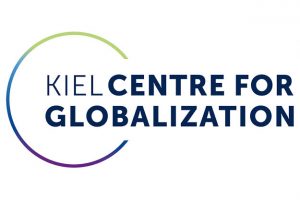A New KCG Research Project on the Impact of Special Economic Zones on Inequality

Inward foreign direct investment (FDI) is generally considered to be advantageous for supporting economic development in the emerging economies. Foreign investors do not only bring financial resources, know-how and technologies that are (relatively) limited on site into the FDI destination countries but also help local firms to gain better access to and benefit from the global production networks.
Governments thus have implemented policies that aim at making their countries more attractive to foreign investors. One frequently used industrial policy measure here is the establishment of Special Economic Zones (SEZs). SEZs are established as geographically delineated areas where governments often provide investors in the zones above-average infrastructure support and preferential treatment in fiscal and regulatory affairs. According to UNCTAD (2019) there are now about 5400 SEZs across 147 economies in the world. And more than 500 further SEZs are currently in development.
While acknowledging the overall globalization gains, incl. those that SEZs may help bring into the countries, one key related challenge is that not everyone may benefit equally: globalization may also contribute to inequality among workers, firms and regions within a country (e.g., IMF et al., 2017).
Against this background, a new KCG research project aims at evaluating the implications of such SEZs for development as well as their impact on the social and economic inequality using micro-level data for individuals, households and firms. In so doing, the project will contribute important insights into the question of whether SEZs can also be a useful tool to reduce poverty and to cope with social and economic inequality, beyond their general aim to attract FDI.
The project focuses on three selected emerging economies: Ghana, India, and Vietnam. A group of researchers from Africa, Asia and Europe with complementary skills and experiences will jointly contribute to the research and outreach activities of the project. Prof. Holger Görg, Ph.D. (KCG Managing Director) is responsible for coordinating these research and outreach activities.
The project team consists of
- a KCG research team led by Görg at the Kiel Institute for the World Economy, Germany,
- a research team led by Aradhna Aggarwal, Ph.D. and Prof. Ari Kokko, Ph.D. from the Copenhagen Business School, Denmark,
- a research team led by Charles Ackah, Ph.D. and Prof. Robert Darko Osei, Ph.D. at the University of Ghana, Accra, Ghana,
- a research team led by Saikat Sinha Roy, Ph.D., from the Jadavpur University, Kolkata, India,
- and a research team led by Tran Toan Thang, Ph.D. from the National Centre for Socio‐Economic Information and Forecast (NCIF), Vietnam.
The four-year project is funded by the Riksbankens Jubileumsfond, an independent foundation from Sweden with the goal of promoting and supporting research in the Humanities and Social Sciences.



 KCG Projects
KCG Projects


